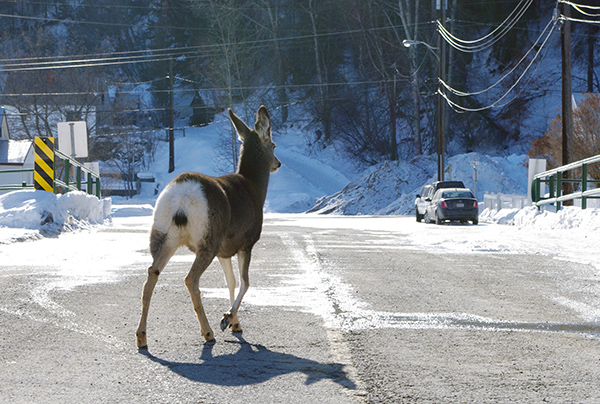BCDPC slams government for denying city hazing permit
Posted: April 19, 2013

Members of the BC Deer Protection Coalition (BCDPC) are disappointed that the Liberal government has denied the City of Kimberley a permit to allow the hazing of deer out of town.
“This is very disappointing news,” said Sherry Shrieves-Adams, a resident of Kimberley, and co-chair, Humane Treatment of Urban Wildlife and spokesperson for the BCDPC. “The whole idea of hazing is to change deer behaviour by moving them out of town and making it uncomfortable to stay in town. It is a viable alternative to culling. The current government downloads the responsibility for managing deer to our community and then ties our hands when we want to try different approaches.”
“As someone who has just lived through a cull in my community, I can attest to the importance of alternative approaches,” said Colleen Bailey, chair of Humane Treatment of Urban Wildlife and spokesperson for the BCDPC. “Unlike our council (City of Cranbrook) who met and voted in secret to proceed with a cull, Kimberley council has proceeded in an open and transparent manner and has implemented a number of very important human/deer conflict prevention measures. Hazing was part of a multi-pronged approach and now that has been taken away from the city. We are going to make this a campaign issue and to fight for changes that will allow municipalities to access a full range of non-lethal approaches to resolving human deer conflicts in their communities.”
Animal Alliance Environment Voters Party of Canada leader and BCDPC member Liz White added, “The Ministry of Forests, Lands and Natural Resource Operations denied the permit because of the Wildlife Act’s Permit Regulations. We disagree. We assert that both the Act and the Regulations allow the Liberal government to issue a permit to the City of Kimberley for the purpose of hazing deer. In fact we put it in writing to Kimberley City Council on April 5. Ministers Steve Thompson and Terry Lake should intervene before the election writ is dropped and issue the permit immediately. This issue will not go away during the election.”
Devin Kazakoff, Invermere Deer Protection Society and BCDPC member said the upcoming election is a chance to be heard. “Our intention is to keep the political pressure up on both the Liberals and the NDP. It is important that both parties understand that this is a highly political issue and is not going away.”
